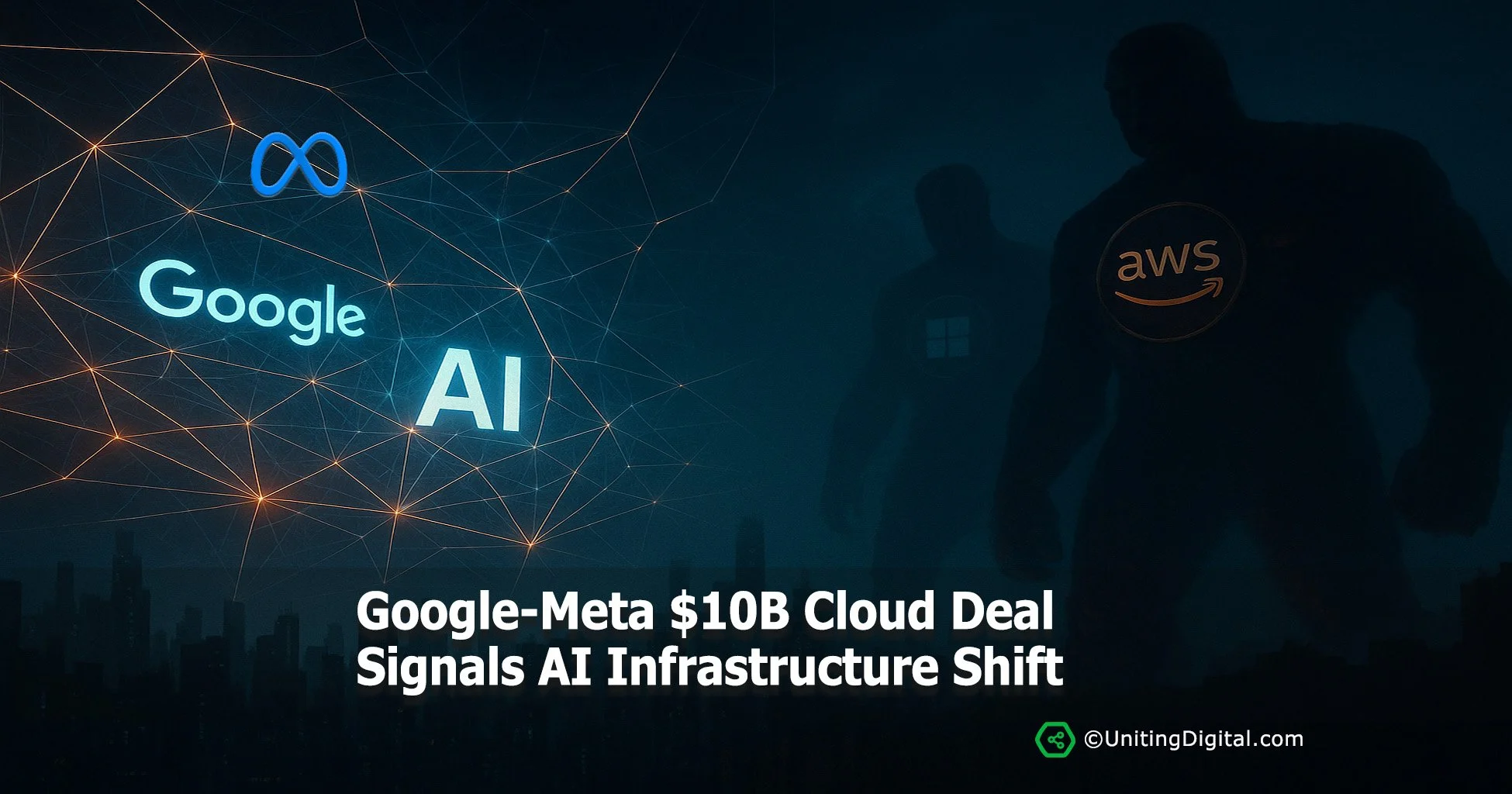Google-Meta $10B Cloud Deal Signals AI Infrastructure Shift
New Infrastructure is being prepared for the next AI era
Google and Meta’s $10 billion, six-year cloud deal marks a turning point in the AI revolution, as fierce competition drives tech giants to forge mega-partnerships to capture value. Meta will leverage Google Cloud’s AI-optimized tools, such as TPUs and Vertex AI, to scale its Llama models, signaling a shift from existing infrastructure to AI-first business models.
The Deal: A Strategic Pivot
Announced on August 21, 2025, the agreement involves Meta committing a minimum of $10 billion over six years to Google Cloud's servers and storage, enabling the expansion of its AI capabilities, including training and inference for large language models. This sees Meta outsourcing significant AI workloads, moving beyond in-house infrastructure or previous partners like AWS/Azure, amid a recent freeze in its AI division hiring. The shift reflects the immense computational demands of the AI race, where even rivals collaborate for scalable solutions to handle petabyte-scale data and real-time inference. They anticipate surging needs for massive infrastructure due to escalating AI model sizes, compute scarcity, and exponential growth in AI applications across Meta's platforms—problems current setups can't satisfy cost-effectively or at speed, necessitating joint efforts to fund and scale data centers while diversifying cloud dependencies.
AI Competition Intensifies
This partnership highlights a maturing AI ecosystem, where hyperscalers such as Google, AWS, and Azure compete to power AI workloads. Google’s win, bolstered by its 32% year-on-year cloud revenue growth ($13.6B in Q2 2025), underscores that even rivals must collaborate to stay competitive. Current AI adoption enhances existing systems, but the ultimate goal is to create AI-first enterprises, driving more such alliances.
Implications for Stakeholders
Consolidation Trend: Only major clouds can meet AI’s hyperscale needs, accelerating industry consolidation.
Hybrid Architectures: Firms blend in-house and cloud solutions for cost and resilience.
Regulatory Scrutiny: Tech interdependence raises antitrust and data sovereignty concerns, with FTC probes active.
Market Shift: Cloud providers are now indispensable for AI-driven businesses.
Outlook: More Mega-Partnerships Ahead
This deal sets a precedent for tech giants prioritizing scale over rivalry. As AI-first businesses demand unprecedented compute power, expect more mega-partnerships, though regulatory scrutiny may intensify over market concentration. Enterprises must ensure workload portability and compliance to lead in this AI-driven era.
About the Author
Arthur Wang

